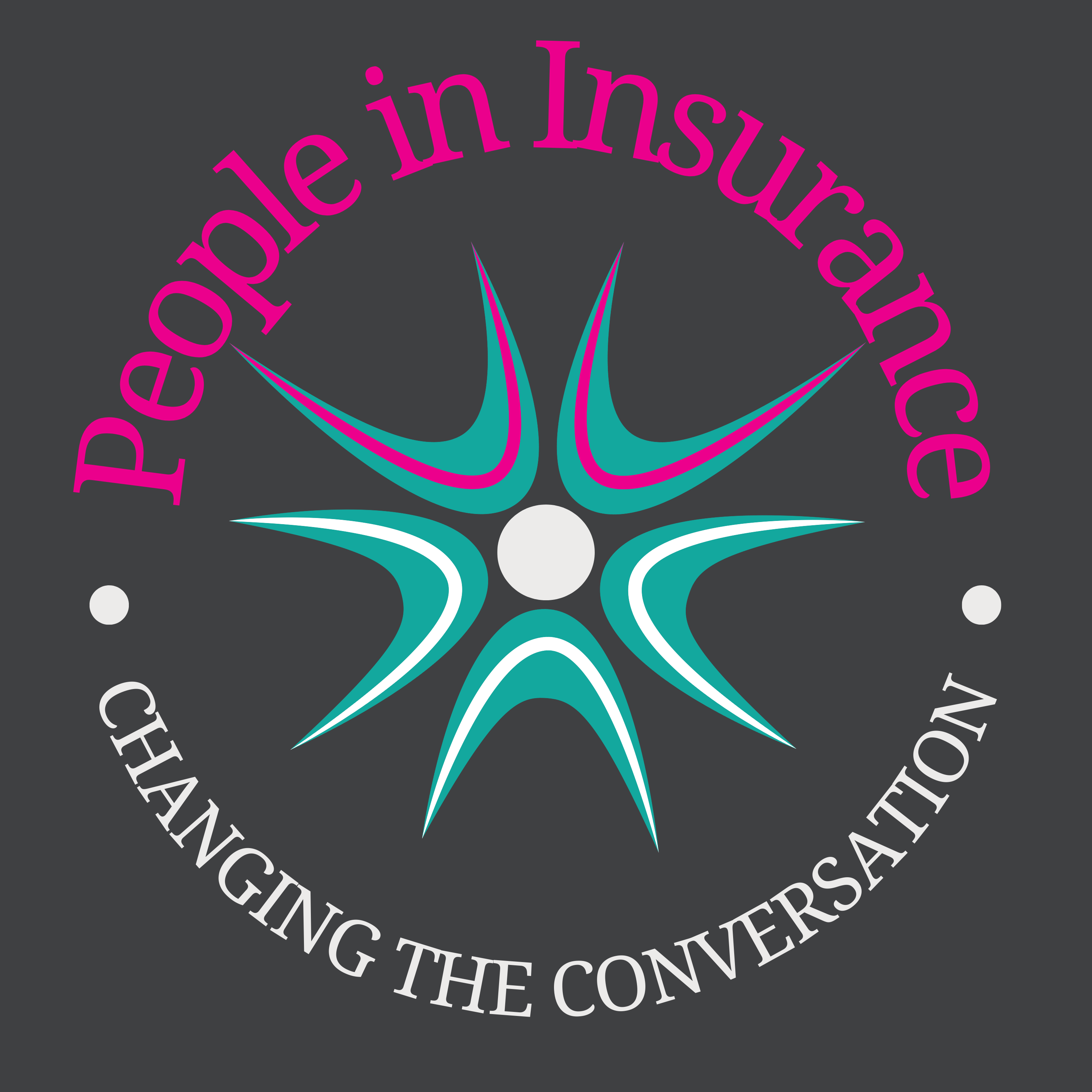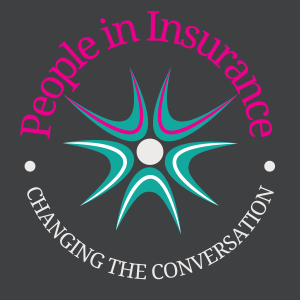
31.2K
Downloads
128
Episodes
Welcome to People in Insurance: Changing the Conversation Join us as we delve into the dynamic intersection of diversity, culture, and technological innovations within the insurance industry. Listen in as Host, Sarah Myerscough, Chief Ideas Officer at Macaii, sits down to talk with trailblazers, thought leaders, and innovators who are reshaping the very fabric of insurance. Here, we bring you stories that not only redefine the narrative but also offer a fresh perspective on the evolving landscape of insurance. From ground-breaking initiatives to transformative insights, we’re your trusted guide through the winds of change. Tune in to People in Insurance, brought to you by Macaii, and stay ahead of the curve in the ever-evolving world of insurance.
Episodes

Wednesday Jan 12, 2022
Wednesday Jan 12, 2022
Are you feeling overwhelmed by the immense level of practical knowledge your clients now require of you? Or do you feel confident both in your understanding of the risks facing your clients and their businesses, and in the products you have provided them with? Either way, it’s becoming increasingly apparent that clients are looking for bespoke products which fully cover them against all potential losses, particularly in niche markets such as railway-adjacent construction.
In this week’s episode, we’re very pleased to be speaking with Dave Cahill and Steve Cox of Miller Insurance’s construction branch. In conversation with Boston Tullis’ Sarah Myerscough, they discuss the staggering minefield faced by both construction firms and their respective brokers and insurers with regard to certain projects; namely those involving construction over or nearby transport links. Despite the specific focus on contractor liability insurance, the discussion in this episode can be considered microcosmic for broader market trends which brokers and insurers alike should be taking into consideration.
Quote of the Episode
‘You really need to know your staff when you're talking about this kind of a risk.’
When dealing with very niche, bespoke products with minimal capacity, it is essential that brokers provide insurers with all the necessary information about the particular risk facing their client. To avoid incidents such as Tesco’s extensive pay-out to Chiltern Railways after failing to secure coverage from their insurer following infrastructural damage at a supermarket construction site, clients need products that can provide watertight protection against both potential damage and non-damage. This principle needs to be undertaken across the entire insurance market. As it gradually becomes increasingly geared towards extremely niche specialisms, brokers need to be equipped with the knowledge required to perform detailed, analytical risk assessments before presenting to insurers.
Key Takeaways
This episode examining the 2005 case of Tesco v Constable, in which the former was denied an insurance pay-out following the collapse of a tunnel being built to accommodate the construction of a new supermarket in Gerrard’s Cross. Fortunately, no one was hurt, but the collapse caused a significant amount of damage to the track, and prevented the railway line from operating for several months. The track was the property of Network Rail, while Chiltern Railways was the train operator which had the right to use the rail infrastructure in the area under a track access agreement.
Prior to the start of the supermarket’s construction, Chiltern Railways demanded that Tesco enter a legal agreement that it would indemnify them for any losses arising from the project, to which the company agreed. Despite the fact that Chiltern did not own the damaged track, they sustained a substantial non-damage loss due to the closure of the line after the collapse of the tunnel. Tesco accepted that they were liable under the agreement and sought to recover the damages that they were obliged to pay under their agreement through their public liability insurance policy. This policy included a contractual liability provision. However, the insurer refused to pay, and the matter went to court, where it transpired that this particular policy provision only covered contractual liabilities that were also coexistent in tort (i.e., entailing substantial damage to property). As the damaged property did not belong to Chiltern Railways, with whom Tesco agreed the contract, the insurer could decline the claim. This forced Tesco to pay for both the damaged property and the non-damage of Chiltern’s lost business themselves.
This highlights the profound importance of providing clients with iron-clad policies to protect them against potential indemnity, especially if they are involved in binding liability contracts as in this case. For example, today, Network Rail insists that you provide an indemnity under an asset protection agreement. Thus, any a loss incurred during a construction project being carried out adjacent to Network Rail’s property renders the developer/contractor responsible for indemnifying Network Rail, irrespective of whether that party have been negligent or not. Indeed, in some cases, (non-)damage can occur without any mistake or failure on the developer’s behalf, but they are nonetheless bound to indemnify the rail operator. Steve and Dave give multiple examples of unexploded World War II bombs located in London by builders working on projects adjacent to Network Rail lines, which caused evacuations and train delays, for which the contracted firm was liable to pay.
These risks are extremely complex, as the potential for non-damage losses are so unpredictable. As such, clients working in these specialist fields require a broker that can secure an airtight insurance product to cater for these losses and the liabilities they incur.
Best Moments/Key Quotes
“In common law, or in the tort of negligence, liabilities exist normally where one party causes a loss to a third party, and that loss is foreseeable. The test for foreseeability… is whether there’s either some sort of damage or injury.”
“When you’re intending to carry out construction activities… it's standard practice for Network Rail to insist that you provide an indemnity under what's called an Asset Protection Agreement… It says any liability arising from any loss arising from the project that's been carried out the building work… then that party must indemnify Network Rail for its losses.”
“If you are unaware of this type of sort of legal development for these types of projects, and you are the development party, you're liable. You’ll really want to be able to claim that back from your insurers, but you won't be able to, unless you are aware of this and have put the relevant insurance product in place, which does now exist as a result of these cases.”
“There are classic examples of cases where the developer or the contractor is not liable, hasn't done anything negligent… but because they signed a legal agreement that makes them responsible for all incidents arising from the construction project, then they're liable by virtue of the contractual indemnity.”
Resources
The wrong side of the tracks - rail liabilities and insurance by Dave Cahill: https://www.miller-insurance.com/News-and-insights/Latest-insights/The-wrong-side-of-the-tracks-rail-liabilities-and-insurance
Miller Insurance: https://www.miller-insurance.com/
About the Guest
Dave Cahill is the Head of Client Development at Miller Insurance’s construction practice, where he has worked for just over a year. He has been a construction insurance practitioner for over thirty years, initially working with clients in the construction industry before entering the London insurance market in 2002.
Dave’s LinkedIn Profile https://uk.linkedin.com/in/davecahilljlt
Steve Cox is head of UK construction team at Miller Insurance. He has been working in the industry for 40 years, handling contractors, subcontractors and many project insurances. He has also been the insurance broker for a train operating company, and has worked for Network Rail on accounts.
Steve’s LinkedIn Profile: https://uk.linkedin.com/in/steve-cox-29b66231
About the Host
Sarah Myerscough is the Sales and Marketing Director of Boston Tullis Group. The founder of The Insurance Brokers Podcast, she brings a wealth of marketing experience and a fresh perspective on marketing in the insurance sector. Boston Tullis works with insurance brokers to offer solutions to business development ceilings, particularly in the rapidly developing fields of video marketing and thought leadership.
If you would like Sarah to help you develop an integrated marketing strategy, using state of the art concepts, then please book a free 20 min call via Calendly.
Website: https://bostontullis.co.uk/
Evaluation Link: https://s.bostontullis.co.uk/s/podcastevaluation

No comments yet. Be the first to say something!